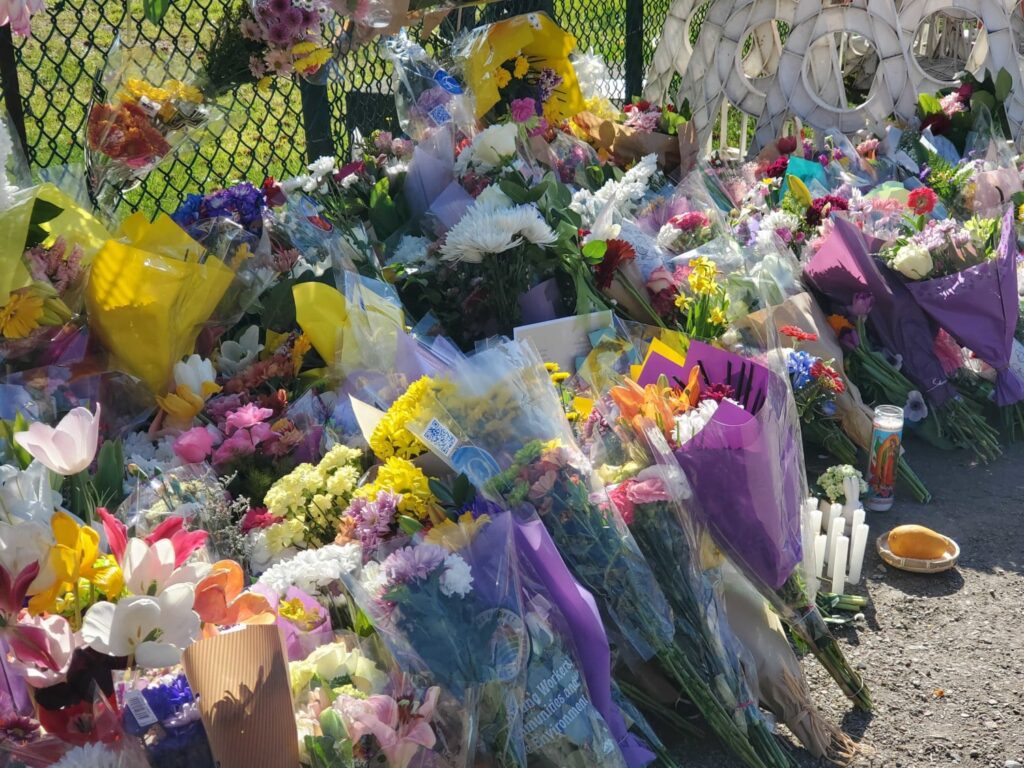Normalise the conversation on mental health
Vancouver experienced a profound tragedy that left many in the community in shock and in mourning. The Lapu Lapu Festival, a vibrant celebration of Filipino culture, was meant to be a joyous occasion but took an unexpected and tragic turn, resulting in a crisis that will affect many of us for years to come.
As the community mourns, it is essential to acknowledge the mental health issues arising from such traumatic events.
Grief, anxiety, and post-traumatic stress are common reactions to loss, and in this instance, they are compounded by the communal nature of the tragedy. For many, this event was not just a personal loss but a collective one, as it was an attack on the spirit of the Filipino community in Vancouver.
The emotional scars left by the tragedy can lead individuals to feel disempowered, angry, fearful, and overwhelmed. It is crucial for mental health resources to be readily available, offering support to those in need.

Break The Silence
As we process what has occurred, we must address the mental health consequences from this tragedy. Support measures, including counselling services and support groups, should be promoted broadly to ensure that no one is left to navigate their pain in isolation.
There will be much anger about how this could have happened to us. There will be finger pointing, and accusations hurled at people, organizations or agencies, as we look for someone to blame.
The authorities informed us that the perpetrator of the tragedy was himself struggling with mental health issues. It was also revealed that he had suffered much grief and pain in his own life, having lost a brother to murder, followed by his mother’s attempted suicide.
The conversation about mental health is imperative and must be taken seriously.
Breaking the silence surrounding mental health challenges will help to foster an environment where those affected feel comfortable reaching out for the help they require.
It is also an opportunity for the greater community to come together in solidarity and support. By prioritizing mental health and showing compassion to one another, we can foster resilience, healing, and a renewed commitment to protect our communities.
How Do We Heal?
How do we begin to heal? Without a doubt, it will be a long road ahead, and it will look differently for everyone.
To effectively support healing and recovery, these are some suggestions that we can all engage in, in our own way:
Establish Open Communication: Facilitate discussions within your own community, churches, families and friends, about feelings and experiences. Normalizing conversations around mental health can encourage those struggling to seek help. If you feel comfortable, share your own emotions, and you would have started one conversation about mental health.
Resource Accessibility: There are many mental health resources that are already available in BC. See the list below. Share these mental health resources with loved ones and anyone who may need them.
Encourage Collective Healing: Attend and participate in community events that celebrate resilience, remembrance, and togetherness. These gatherings can foster a sense of unity, allowing people to support one another and share their experiences. While we will be personally processing our grief differently, it is important know that we are not alone.
Build Support Networks: Building other support networks within the community, in churches, in community centres, in neighbourhoods, can provide a valuable outlet for sharing experiences, encouraging resilience, and again, reminding individuals that they are not alone in their struggles.
Ongoing Support: Recognize that healing is a long process. Continued support and follow-up are really important to address evolving needs and prevent long-term mental health consequences. Keep the conversation going, but recognizing that everyone will process their grief in their own way, and in their own time.
Mental Health Resources
9-8-8 (call or text)
National Suicide Crisis Helpline / Ligne d’aide en cas de crise de suicide
310-6789
BC Mental Health & Crisis Response / no area code needed
1-800-SUICIDE / 1-800-784-2433
BC Suicide Prevention and Intervention Line
604-872-3311
Vancouver Coastal Regional Distress Line
1-800-SUICIDE (1-800-784-2433)
Crisis line. Free and available 24 hours.
Concerned citizens who wish to volunteer during a crisis or emergency, may do so here:
City of Vancouver Emergency Response
Reach Out
If we can help, please reach out to us anytime.
